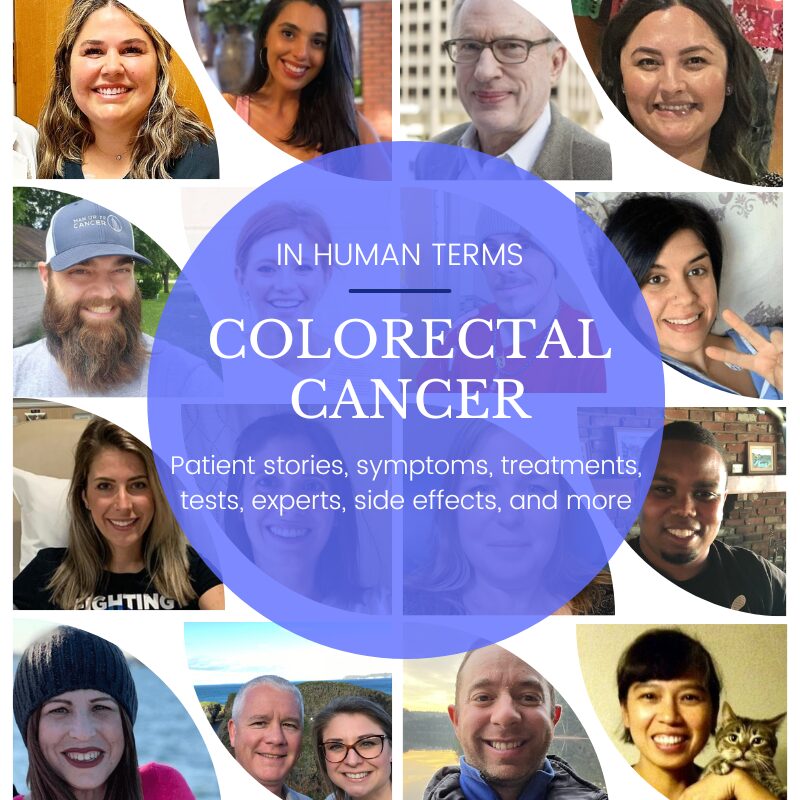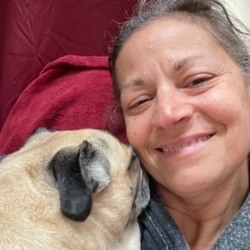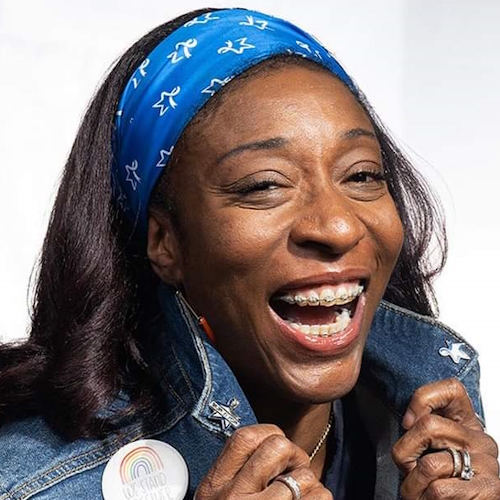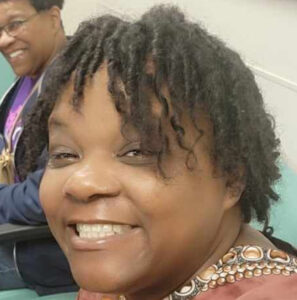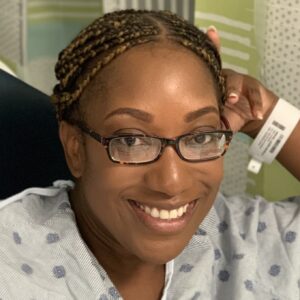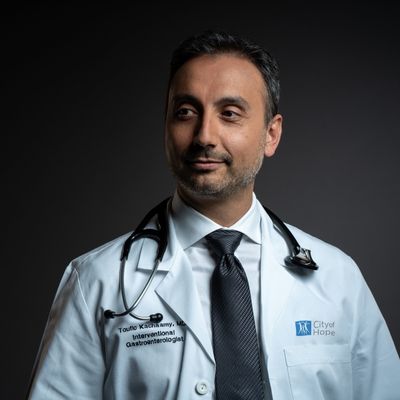Colorectal Cancer Stories






Colorectal cancer can start either in the colon or the rectum. It makes up about eight percent of all cancer cases in the U.S. Finding and removing polyps can prevent colorectal cancer. (NCI) It’s also on the rise for men and women under 50 years old, as many of our stories below will highlight.
2024: Colon Cancer on the Rise in Younger Adults
A 2024 report highlights a worrying 9% increase in colorectal cancer among those under 50. Despite unclear reasons for this rise, factors like genetics, lifestyle, and obesity are considered. Surprisingly, many young patients don’t fit the typical risk profiles, hinting at other causes like environmental factors or microbiome changes. This trend is leading to more late-stage diagnoses in young adults, emphasizing the need for awareness and early screening.
Go directly to our stories covering younger diagnoses.

Scientists are now working to uncover the causes behind this rise and develop strategies to prevent and treat colorectal cancer in younger age groups. As Dr. Kimmie Ng, director of the Young-Onset Colorectal Cancer Center at the Dana Farber Cancer Institute, said, “Research into what the underlying causes are and what the risk factors are, is so important. We need to identify those young people who are at high risk and target them for earlier screening.” Read our interview with Dr. Ng.

Take our Colorectal Cancer Survey and get 10 Tips from Our Community on symptoms, diagnosis, treatments, and support.
Colorectal Cancer 101

Learn more with our guide on colorectal cancer, a disease that affects the colon or rectum. In this colorectal cancer overview article, we touch on crucial aspects such as screening, stages, treatment options, and patient stories. Through these stories, you’ll discover valuable insights from the very people who have been there.
Patient Stories
Explore below for colorectal cancer stories from our community of patients and thrivers who share their experiences with colon and rectal cancer diagnoses and treatments.
Colon Cancer Stories
Kristie C., Colon Cancer, Stage 4 (Metastatic)
Symptoms: None per se that she noticed; she experienced constipation and passed narrow stool, but had been experiencing constipation most of her life, and thought that these digestive issues could also have resulted from perimenopause
Treatments: Chemotherapy (including adjuvant chemotherapy), radiation therapy, ablation therapy (liver ablation), surgeries (colectomy, temporary ileostomy, ileostomy reversal, scheduled liver resection)
Briana H., Colorectal Cancer, Stage 3
Symptoms: Periods of constipation initially lasting one week and then extending to two weeks, nausea, pain in lower left abdomen, lack of appetite, vomiting and inability to keep fluids down
Treatments: Surgeries (colon resection, tumor removal, colostomy placement, colostomy reversal), chemotherapy
Kailee O., Colorectal Cancer, Stage 4 (Metastatic)
Symptoms: Sensitive stomach sometimes leading to vomiting after eating, bleeding during bowel movements, persistent fatigue, back pain, abdominal pain, anemia, significant symptom flare-up during second pregnancy
Treatments: Surgery (colectomy), chemotherapy, targeted therapy
Starr S., Colon Cancer, Stage 4 (Metastatic)
Symptom: Abdominal pain
Treatments: Chemotherapy, surgeries (colectomy, hepatectomy, lymphadenectomy), targeted therapy
Jackson L., BRAF Mutation Colon Cancer, Stage 4
Symptoms: Severe stomach pain, fatigue, lack of motivation, anemia, blood in stool, thinning stool
Treatments: Surgeries (emergency bowel obstruction surgery with temporary colostomy, possibility of HIPEC in 2026), chemotherapy, immunotherapy
Heather C., Colon Cancer, Stage 4 (Metastatic)
Symptoms: Severe bloating, indigestion, vomiting, rectal bleeding
Treatments: Chemotherapy, surgery (liver transplant, upcoming)
Rectal Cancer Stories
Sarah G., Rectal Cancer, Stage 2A
Symptom: Minor and inconsistent rectal bleeding
Treatments: Surgery (low anterior resection or LAR), chemotherapy (FOLFOX)
Kalei M., Rectal Cancer, Stage 4 (Metastatic)
Symptoms: Presence of mucus and tissue-like substance and blood in stool, stomach cramping
Treatment: Radiation therapy, chemotherapy, surgeries (two lung resections)
Jessica A., Rectal Cancer, Stage 4 (Metastatic)
Symptoms: Changes in bowel movements, blood in stool, abdominal pain, back pain, difficulty sitting comfortably, constipation, feeling of incomplete evacuation (as if some stool remained after bowel movements), mucus-like stool consistency, bloating
Treatment: Immunotherapy under a clinical trial
Shiva S., Rectal Cancer, T2, and Renal Cancer, T3
Symptoms: Pressure and urgency of bowels, back pain
Treatments: Chemoradiation (for rectal cancer), surgery (ileostomy, combined bowel and kidney surgery), immunotherapy (for kidney cancer)
Jeanine B., Rectal Cancer, Stage 3 (T3bN0M0)
Symptoms: Long history of bleeding that was blamed on hemorrhoids, pain in the tailbone, urgent need to use the restroom, unusually narrow stools, presence of mucus in stools, fatigue
Treatments: Chemotherapy, radiation therapy
Devon B., Rectal Cancer, Stage 4
Symptoms: Pain when trying to move bowels, increased frequency of bowel movements alternating with periods of constipation, passing mucus instead of feces, narrow stools
Treatments: Surgery (ostomy surgery), radiation therapy, chemotherapy
Colorectal Cancer Stories
Cora V., Colorectal Cancer, Stage 4 (Metastatic)
Symptoms: Fatigue, unintentional weight loss, blood and mucus in stool
Treatments: Chemotherapy, chemoradiation, surgeries (temporary ileostomy and reversal, liver surgeries and ablation)
Monica D., Colorectal Cancer, Stage 1
Symptoms: None; caught at a routine colonoscopy
Treatment: Surgery (low anterior resection with temporary diverting ileostomy)
Edie H., Colorectal Cancer, Stage 3B
Symptom: Chronic constipation
Treatments: Chemotherapy, radiation, surgeries (lower anterior resection & temporary ileostomy)
Shayla L., Colorectal Cancer, Stage 4
Symptoms: Stomach sensitivity, food intolerances, exhaustion, blood in stool
Treatments: Chemotherapy, surgery (hepatectomy)
Tracy R., Colorectal Cancer, Stage 2B
Symptoms: Bloating and inflammation, heaviness in the rectum, intermittent rectal bleeding, fatigue
Treatments: Chemotherapy, radiation, surgery
Paula C., Colorectal Cancer, Stage 3
Symptoms: Painful gas, irregular bowel movements, blood in stool, anemia, severe pain, weight loss, fainting spells
Treatment: Surgery (tumor resection)
Patients In Their 30s and 40s Share Their Earliest Symptoms
In 2024, a concerning trend emerged: colon cancer incidence is rising among adults under 50, particularly those between 30 and 40 years old. The American Cancer Society (ACS) reports that this demographic is the only one to experience an increase in overall cancer incidence (number of new cases in a year for every 100K people) from 1995 to 2020. Colorectal cancer, once the fourth leading cause of cancer deaths for people under 50, has now become the leading cause for men and the second for women.
Regular screenings for colorectal cancer are crucial for early detection. The most common screening method is a colonoscopy, which allows doctors to examine the entire colon and rectum for polyps or signs of cancer.
Colorectal Cancer Medical Expert Interviews
Toufic Kachaamy,MD
Role: Chief of Medicine and Director of Gastroenterology
Focus: endoscopic oncology
Provider: City of Hope (Phoenix)
Kimmie Ng, MD, MPH
Role: Gastrointestinal oncologist
Focus: Young-onset colorectal cancer, microbiome
Provider: Dana-Farber Cancer Institute (Boston)
Navigating the Latest Metastatic Colorectal Cancer Treatments and Clinical Trials
Colorectal cancer patient advocate Allison Rosen and leading oncologist Dr. Cathy Eng from Vanderbilt-Ingram Cancer Center discuss the latest advancements in the treatment of metastatic colorectal cancer, the current treatment landscape, and the most promising clinical trials available.
